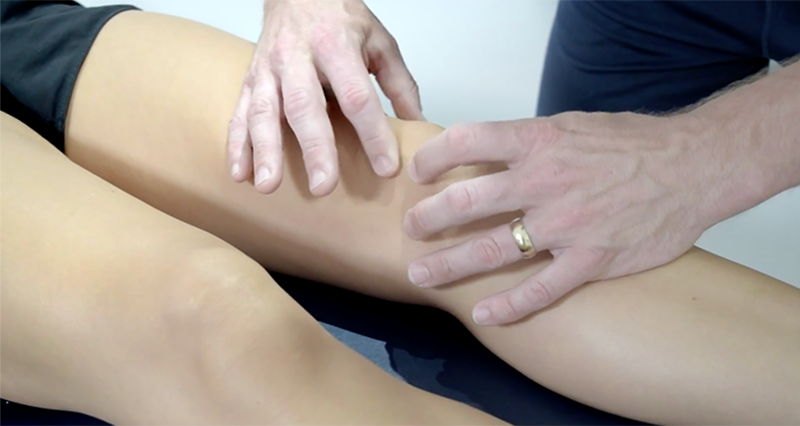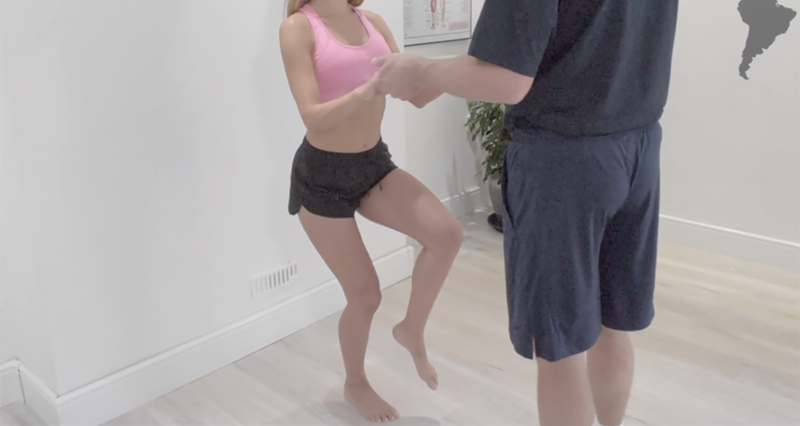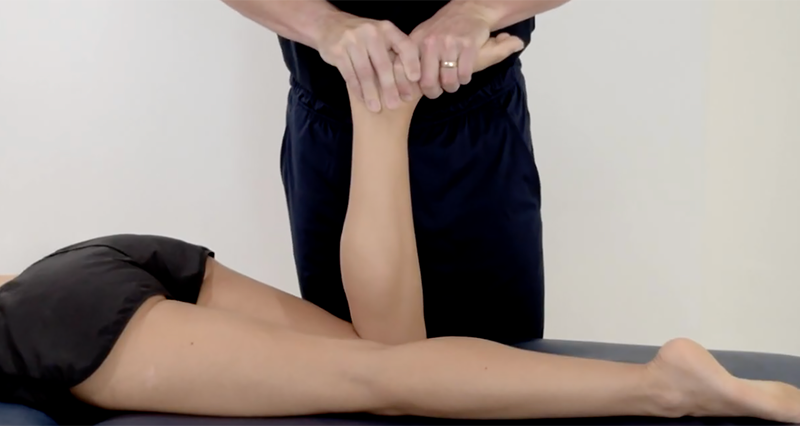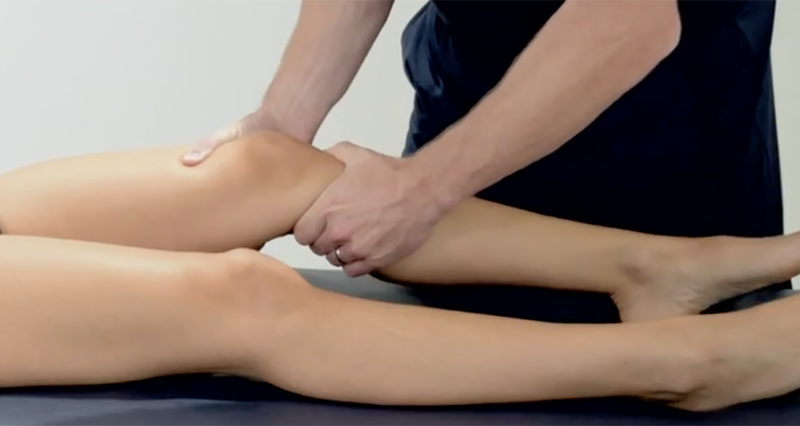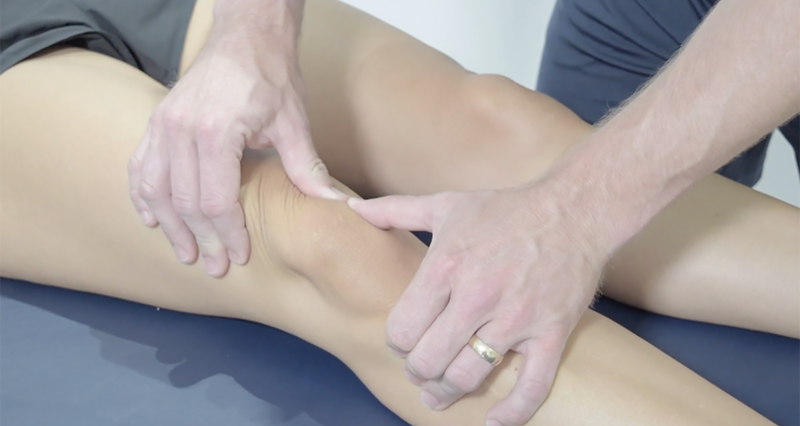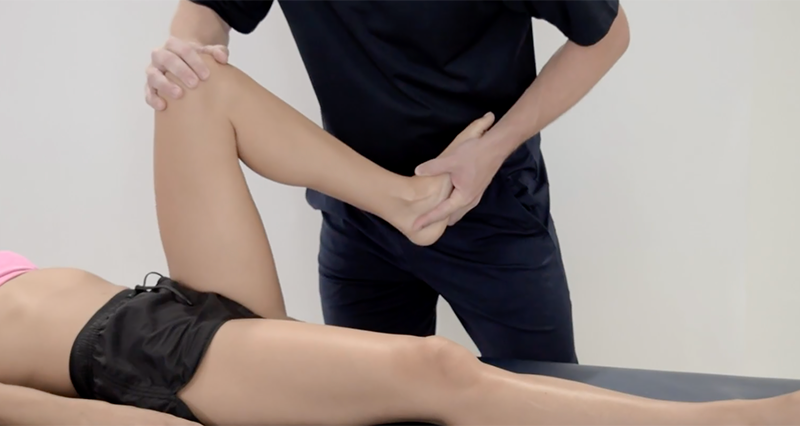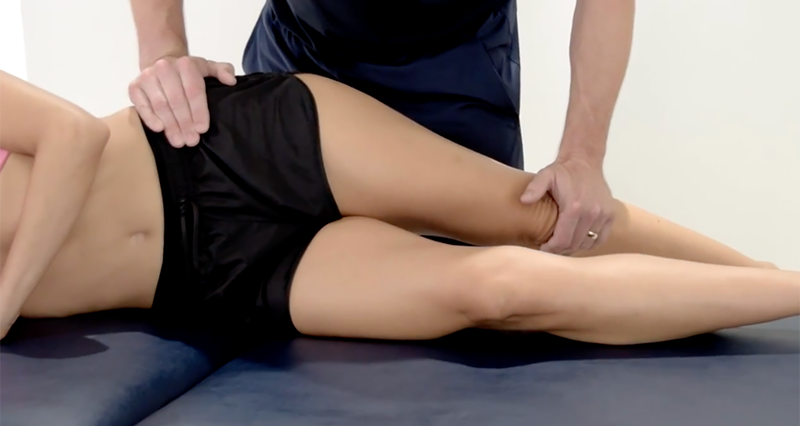The varus stress test assesses the integrity of the lateral collateral ligament (LCL) in the knee joint. The LCL is one of the four major ligaments that stabilise the knee. The LCL in particular, protects against excess outside movement or varus stress. In other words, it protects against forces which push the knee outwards from the inside.
What is an LCL Sprain?
An LCL sprain or lateral knee ligament sprain is a tear to the ligament on the outside of the knee. It most commonly occurs following a direct blow to the inside of the knee. However, it can also develop gradually through overuse.
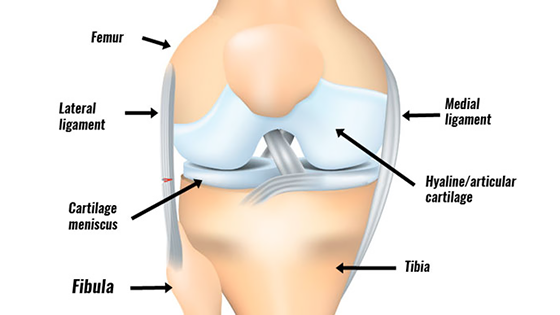
How to perform the Varus stress test:
The patient usually lies on their back with the knee slightly bent, about 20-30 degrees. Hold the thigh with one hand to stabilize the femur. Then, with your other hand, grasp just above the ankle. Push the lower leg toward the body’s midline, applying a varus force while keeping the knee bent.
Next, check for any lateral opening (varus laxity) at the knee joint and compare it with the opposite side. Also, take note of how the movement feels at the end.
What is a positive Varus stress test?
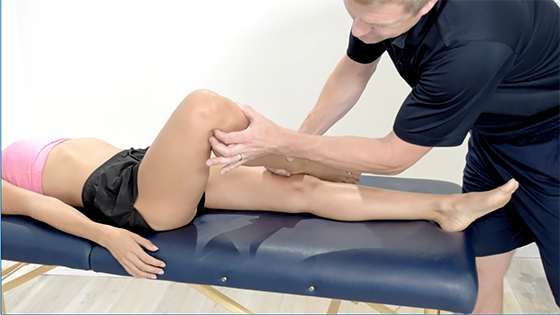
A positive test indicates excessive lateral opening of the knee joint compared to the other side or a soft, mushy end feel instead of a firm one. These signs may suggest a tear or laxity in the LCL, indicating instability and likely an LCL injury.
A negative test shows minimal lateral opening and a firm end feel, suggesting that the LCL is intact and providing appropriate stability to the knee joint.
Considerations
The test helps clinicians diagnose LCL injuries and choose the right management approach. Treatment options range from physical therapy to surgery, depending on the injury’s severity and symptoms.
The varus stress test, along with other tests and MRI scans, guides clinicians in planning treatment and rehabilitation for knee injuries, especially on the knee’s outer side.
